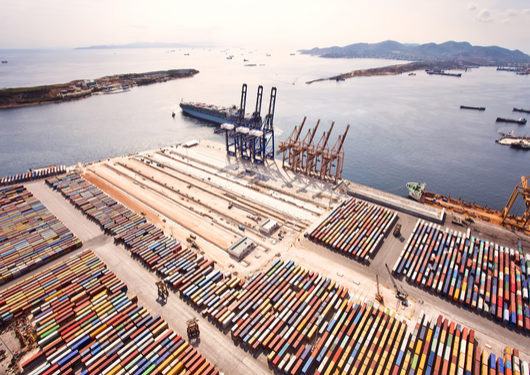
Visit Our Sponsors |
|
|
|
|
|
|
|
|
|
|
|
|
|
|
|
|
|
|
|
|
|
|
|
|
|
|
|
|
|
|
|
|
|
|
|
|
|
|
|
|
|
|
|
|
|
|
|
|
|
|
|
|
|
|
|
|
|
|
|

2017 brought a new presidential administration and an almost immediate end to the highly anticipated Trans-Pacific Partnership (TPP). The rest of the year consisted of many unfulfilled protectionist threats in the U.S. and abroad such as the initiation of NAFTA renegotiation. The World Economic Forum has pointed out that supply chains are the backbone of the global economy. As companies continue to send armies of lobbyists to protect their global supply chains, there is no chance that the threats to your company will disappear. -Beth Pride, President, BPE Global
Your Global Supply Chain is at Risk
Every one of the myriad of trade policies that were in the crosshairs in 2017 are still targets. Elimination of, or a major change to, any one of them could cripple a company from their pipeline through to their supply chain. Changes to more than one could possibly put companies out of business. Because of this, companies should know the impact of any applicable trade policy changes multiple perspectives.
Finance Budget, Cost of Goods Sold (COGS), tax compliance, revenue and expenses.
Sales Market access, pricing, customer retention and support.
Entities Contracts, banking and sourcing.
Manufacturing Product design, global manufacturing operations and services.
Trade policy change can impact a company’s overall brand especially if a company’s strategy regarding trade policy change is to simply pass any additional cost on to their customers.
Key policies that your corporate executives should have the facts on are NAFTA, TPP (without the U.S.), Transatlantic Trade and Investment Partnership (T-TIP) and the U.S. Korea Free Trade Agreement (KORUS). The reality is that global trade compliance will be done differently in many countries. Companies should be closely watching the trade policy changes going on in the United Kingdom, China, Venezuela, Mexico and Russia, just to name a few.
A company’s ability to weather uncertainty is only as strong as its ability to adjust quickly to changing circumstances. With so much in the air concerning free-trade agreements, rules of origin, new import duties and taxes, visa restrictions and the real possibility of retaliatory trade wars, it’s more important than ever for companies engaged in global trade to stay ahead of the game and be flexible to eliminate volatility that’s controllable.
The Outlook
2018 is going to require continued vigilance. Taking a “wait and see” attitude towards trade policy changes could be fatal. Your company should have continency plans in place for every major trade issue that could impact your bottom line. Get ahead of possible disruptions, know the additional costs you will bear, understand how your customers might be impacted. There’s simply no excuse for not planning ahead.
RELATED CONTENT
RELATED VIDEOS
Timely, incisive articles delivered directly to your inbox.







